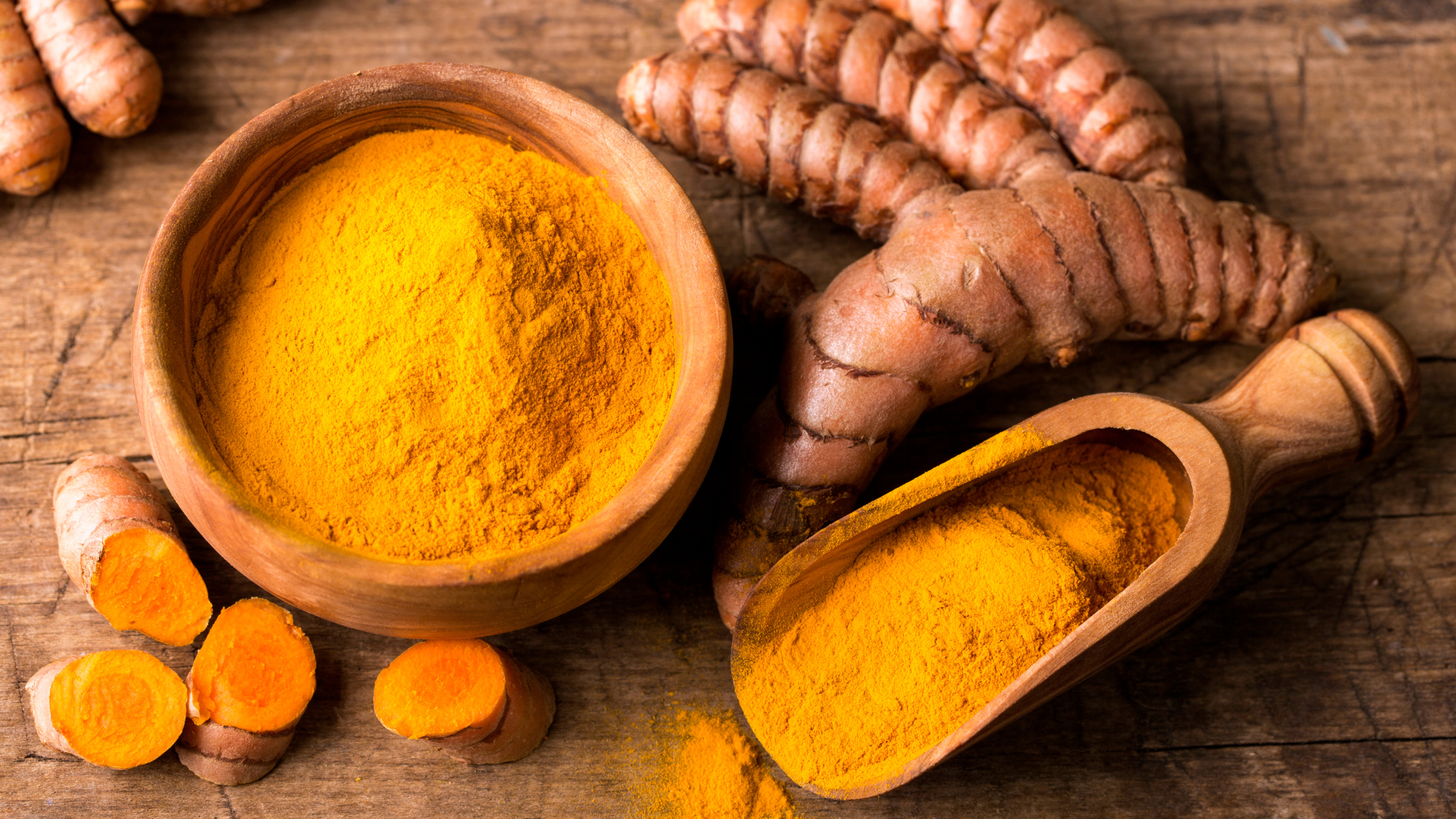
Turmeric, a bright yellow spice derived from the root of the Curcuma longa plant, is renowned for its potent anti-inflammatory properties. Its active compound, curcumin, is primarily responsible for its health benefits. Here’s a comprehensive look at how turmeric enhances the body’s ability to combat inflammation:
Table of Contents
1. Curcumin: The Key Component
Curcumin is the primary active ingredient in turmeric that provides its anti-inflammatory benefits. It works by:
- Inhibiting inflammatory pathways: Curcumin blocks several molecules that contribute to inflammation, such as nuclear factor-kappa B (NF-kB) and pro-inflammatory cytokines. By interfering with these pathways, curcumin reduces inflammation at a cellular level.
- Modulating enzyme activity: Curcumin inhibits enzymes like cyclooxygenase-2 (COX-2) and lipoxygenase (LOX) that are involved in the inflammatory process.
2. Antioxidant Properties
Curcumin is also a powerful antioxidant. It:
- Neutralizes free radicals: By scavenging free radicals, curcumin prevents oxidative stress, which often accompanies inflammation. This helps protect cells from damage and further inflammation.
- Enhances antioxidant defenses: Curcumin boosts the activity of the body’s own antioxidant enzymes, such as glutathione and superoxide dismutase, which aid in reducing inflammation.
3. Regulation of Inflammatory Markers
Turmeric helps regulate levels of key inflammatory markers:
- C-reactive protein (CRP): Elevated CRP levels indicate systemic inflammation. Curcumin can lower CRP levels, helping to manage chronic inflammation.
- Interleukins: These are signaling molecules involved in inflammation. Curcumin inhibits the production of inflammatory interleukins, such as IL-1β, IL-6, and IL-8.
4. Impact on Chronic Diseases
Turmeric’s anti-inflammatory effects play a significant role in managing and preventing chronic diseases:
- Arthritis: Turmeric is well-known for its benefits in treating osteoarthritis and rheumatoid arthritis. Curcumin’s anti-inflammatory and analgesic properties help reduce joint pain and improve mobility.
- Cardiovascular Disease: By reducing inflammation and oxidative stress, turmeric helps lower the risk of cardiovascular diseases, including heart attacks and strokes. It also improves endothelial function and reduces the risk of plaque formation in arteries.
- Diabetes: Turmeric helps manage blood sugar levels and reduces inflammation associated with insulin resistance, contributing to better glycemic control.
- Cancer: Some studies suggest that turmeric may inhibit the growth of cancer cells and reduce inflammation-related cancer risks, though more research is needed.
5. Gut Health
Turmeric supports digestive health by:
- Reducing inflammation in the gut: Chronic gut inflammation can lead to conditions like inflammatory bowel disease (IBD) and irritable bowel syndrome (IBS). Curcumin helps soothe the gut lining and manage symptoms.
- Supporting gut microbiota: Turmeric has prebiotic effects, promoting the growth of beneficial gut bacteria and enhancing overall gut health.
6. Brain Health
Curcumin also benefits brain health:
- Crosses the blood-brain barrier: Curcumin can cross the blood-brain barrier and exert anti-inflammatory effects directly in the brain.
- Reduces neuroinflammation: It helps lower inflammation associated with neurodegenerative diseases like Alzheimer’s. Curcumin may also improve cognitive function and mood.
7. Joint Health
Turmeric is commonly used for joint health due to its anti-inflammatory properties:
- Reduces joint pain and stiffness: Curcumin’s ability to decrease inflammation makes it effective in alleviating pain and improving joint function.
- Supports cartilage health: By reducing inflammation, turmeric helps protect cartilage from damage in arthritis conditions.
8. Bioavailability
One challenge with turmeric is its bioavailability—the extent to which curcumin is absorbed and utilized by the body. Strategies to enhance bioavailability include:
- Combining with black pepper: Black pepper contains piperine, which significantly increases curcumin absorption.
- Using turmeric supplements: Some supplements contain enhanced formulations or include other compounds to improve curcumin absorption.
9. Recommended Dosage
While turmeric can be consumed in food, its therapeutic effects are often achieved through supplements. Typical dosages range from 500 to 2000 mg of curcumin per day, though it’s best to consult with a healthcare provider for personalized recommendations.
10. Safety and Considerations
Turmeric is generally safe for most people when used in moderation. However, high doses or long-term use can cause side effects, such as gastrointestinal discomfort. Turmeric may also interact with certain medications, including blood thinners and diabetes medications. Always consult with a healthcare provider before starting any new supplement regimen.
Turmeric, particularly its active compound curcumin, enhances the body’s ability to fight inflammation through multiple mechanisms. By inhibiting inflammatory pathways, providing antioxidant benefits, and regulating inflammatory markers, turmeric supports overall health and helps manage chronic conditions. Incorporating turmeric into your diet, either through food or supplements, can contribute to improved inflammation control and overall well-being.


